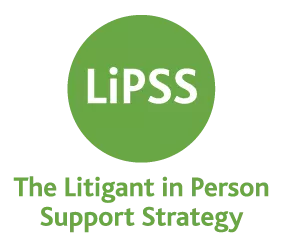If you or your child have experienced abuse or are at risk of domestic abuse and you want legal aid to apply for an order to protect you from the person abusing you, you don't need to get evidence of the abuse to apply for legal aid - skip this section and go to Step 3.
If you or your child haven’t experienced abuse and are not at risk of domestic abuse you don’t need to read this bit - skip this section and go to Step 3.
What counts as domestic abuse?
Domestic abuse in relationships (and among family members) is common. Domestic abuse is behaviour, usually by a partner or ex-partner, (but also by a family member or carer), that is controlling, coercive, threatening, degrading or violent. It can affect anyone – whatever your gender or sexuality.
Abuse can take many different forms - it doesn’t just mean physical violence. It can be:
- emotional,
- psychological,
- economic, including financial,
physical, and - sexual.
If you think you may have been or may be a victim of domestic abuse a good place to start looking for information, help and support is in our Top Picks. Just search Domestic violence in our search box and the best information available online will come up.
If you have experienced domestic abuse from your ex (or another family member) you may be able to get legal aid to pay for advice about your separation or your children, as long as you are on a low income.
Unfortunately, when it comes to getting legal aid, your word about what you have suffered is not enough. The law says that you need evidence to prove what you have been through. There are complicated rules about what the government accepts as evidence but a solicitor can explain these to you. You will need to find a solicitor who specialises in family law and who does legal aid work. Don’t worry - we explain more how to do this later.
A solicitor will need information about your problem, your financial situation, and the abuse you have experienced from the other person involved before they can decide if you should apply for legal aid with their help. When you have worked this out with the solicitor, you then need to provide all your evidence for your application. The solicitor should be able to tell you what evidence they need from you, and how to go about getting it. Ask them to write it down so you have a handy list of what you need to provide.
To see a list of all the documents that are accepted as evidence you can look at the Legal Aid Agency’s list of Evidence Requirements for Private Family Law Matters.
The solicitor you speak to may say that you need to write to whoever you think you can get evidence from to request it. Or, they may help you do this. If you need them, there are sample letters for requesting evidence that you can use in the Legal Aid section of the gov.uk website.
Go down to the bit called ‘How to get evidence’. Choose the first link if you need evidence about what abuse has happened to you or choose the second link for evidence about your child. These links take you to a new page with lots of sample letters to choose from. This may feel overwhelming but don’t worry. You only need one piece of evidence.
You need to choose a sample letter that you think applies most to your situation. Also think about which will be the easiest to get - in terms of time and cost. For example it can take a long time to get information from the police or the court but this should be free whereas your GP may charge you for a letter. If you already have a domestic abuse support worker able to give you evidence they might be the quickest and cheapest (free) option for you. It can take some time to work out what evidence you can get, request it from the right place and then get it to a solicitor. Be patient but persistent!





